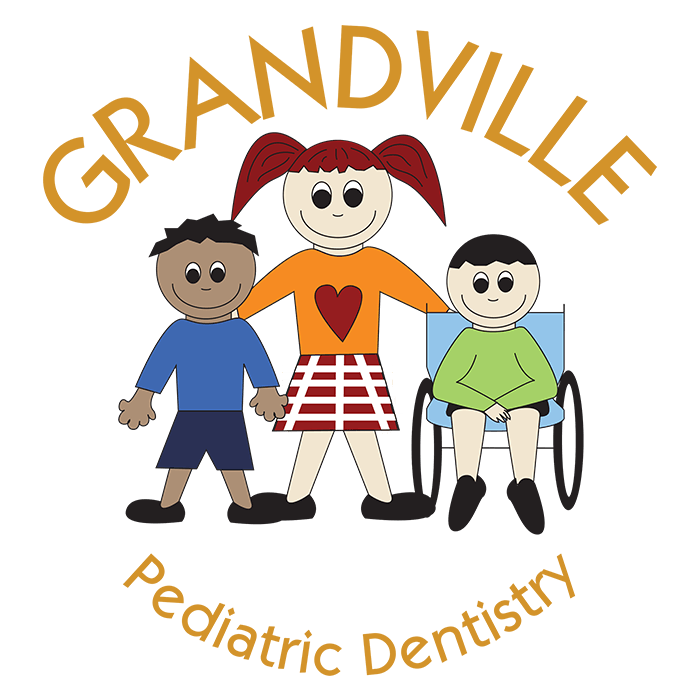The Role of Infant Oral Health Exams

Oral health is directly linked to your overall health and well-being. Ideally, a focus on oral health should begin in the earliest stages of life even before teeth are present. While at-home care is encouraged, our Grandville, MI, pediatric dentists also can’t overstate the importance of an infant oral health exam. These initial evaluations lay the foundation for a lifetime of healthy habits and oral hygiene.
Here’s what you need to know about an .
An Overview of Infant Oral Health Exams
Compared to a standard dental exam for adults, an shares a similar purpose but does differ in the way the actual appointment is set up. For instance, we will have you sit knee-to-knee with one of our local pediatric dentists. Your child will lay on your lap with their legs wrapped around your waist and their head on a comfortable surface that is on top of one of our dentist’s lap.
Ultimately, this positioning increases the comfort level of your baby during the exam. It also makes the examination process easier for our dentists when patients are too small for the dental chair. The experience can be a lot for young children, and they may become fussy when overstimulated but we will try to keep the visit short and sweet.
All in all, an infant oral exam provides an opportunity for our dentists to see how your child’s mouth is developing, evaluate their risk for early childhood dental diseases, and offer oral hygiene tips for babies. It’s a misconception that very young children don’t require oral care, mostly due to the lack of teeth. Your baby’s first dental checkup helps to set the stage for hygiene that is to come down the road as well as introduce parents to the effects that bacteria can still have on gums and emerging teeth.
An Infant Oral Health Exam Will Include:
1) An Evaluation of Gum Tissue & Early Teeth
It’s largely recommended by the American Academy of Pediatric Dentistry (AAPD) and the American Dental Association (ADA) that you start taking your child to see a dentist by the time they turn 1 or once the eruption of the first toothhappens.
Learn More → What Are the First Signs of Teething?
Regardless of which comes first, the actual exam will be the same. Once your child is situated in the position described above, our board-certified pediatric dentists will take a closer look at their extra and intra-oral tissues as well as their teeth (if there are any showing). We’ll also check for and take note of any present plaque, white tooth spots, oral injuries, or gingivitis.
2) A Risk Assessment for Cavities
Every child is different and therefore, may have a higher or lower risk of developing cavities than another child of the same age. The is great for estimating this very risk.
Related Post → 3 Ways to Tell If Your Child Has a Cavity
If you’ve already gotten in the habit of wiping your baby’s gums after every meal and before bedtime, cavities are much less likely. Keep up the good work! If you haven’t, hope is not lost. Our pediatric dentists will ask you a few questions with regards to your baby’s oral hygiene, exposure to fluoride, and family history to determine which form of preventive dental care is needed. Dental sealants can play a huge role in cavity prevention for kids once permanent molars come in and are painless to apply.
3) Guidance on Diet & Certain Habits
Before they’re allowed to have more solid food around 6-8 months of age, babies are largely consuming formula or breast milk. Sippy cups and bottles are expected early on but should not be used for prolonged periods as they do allow for easy access to milk or juice.
Unfortunately, bottles given at bedtime or sugary drinks doled out during the day can lead to what’s known as “baby bottle tooth decay” in young children. Our dentists can discuss this issue with you when you are in our Grandville, MI, pediatric dental office and we can figure out the best dietary habits for babies and toddlers.
Excessive thumb sucking or pacifier use can also be talked about. We have a few helpful tips for stopping these habits by the time your child reaches the age range of 2-4 years old.
4) An Introduction to Fluoride
Fluoride is safe for children but should be used responsibly. Only a light smear of fluoride toothpaste (grain of rice size) is needed for children 3 and under. A pea-sized amount can be given when they’re 3-6 years old. To avoid overexposure, our pediatric dentists recommend adult supervision when fluoride is given to your child.
What Are the Benefits of an Infant Oral Exam?
As mentioned above, taking your child to the dentist for the first time is all about building that foundation and getting little ones used to the concept of dental care. It’s a great opportunity for parents or guardians to ask questions and get immediate feedback. Our dentists want to make sure we’re on the right track when it comes to your child’s smile so all questions are welcome, no need to be shy!
In short, an infant oral exam provides:
- The establishment of a dental home for your child
- Valuable education regarding how to effectively care for gums and emerging teeth
- Increased possibility of lower dental costs in the future for kids due to prevention
Schedule Your Baby’s Exam Today
Our pediatric dentists in Grandville, MI, wholeheartedly believe that these exams play a pivotal role in identifying potential issues before they become problematic, thereby ensuring that infants grow up with strong, healthy teeth. Call Grandville Pediatric Dentistry today at (616) 531-3430 to request an appointment and get your child on the right track from the start.
This blog post has been updated.


